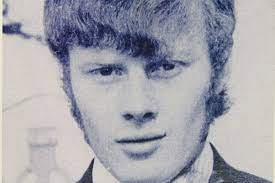Having heard all the available evidence regarding the death of internee Hugh Gerard Coney, who was shot in the back and killed by the British Army as he attempted to escape from Long Kesh in November 1974, the jury is expected to deliver their findings as directed by Coroner Anne-Louise Toal.
On the fourth and last week of the inquest, the court heard the evidence of five former British soldiers, an RUC report, four former prison wardens, four former RUC officers, and two expert witnesses, as well as the impact statement of the Coney family, who have waited half a century, who have had to fight for 50 years for a legally-compliant investigation into their loved one’s death.
The only witness who was present on the scene when Coney was shot, a former trooper in the Royal Hussars known to this inquest as HCM2, said that he shouted warnings but was not prepared to open fire as the circumstances did not allow the use of a firearm. He was scared, but he believed they (the British soldiers on the ground) were under no real threat, and thus, opening fire would have violated the rules of engagements contained in the yellow card. In a statement recorded in 1974, HCM2 said, “To my amazement, I heard the crack of an SLR” and then saw HCM1 in a firing position. The witness indicated that he was shocked that his colleague had opened fire but tried to limit his evidence to his perception at the time, adding that HCM1 could have had a different view from where he was standing. It is regrettable that HCM1 has refused to engage with the inquest and will not be compelled to give evidence.
The rest of the witnesses gave peripheral information surrounding the fatal incident— how Long Kesh was run in 1974, how they found out about the escape, the role of the RUC in investigating the case, and ballistic and pathology aspects, among others.
Coney’s sister, Colette, took the stand on the last day of the inquest to read an impact statement to the jury. As she was describing his late brother and explaining the ‘profound’ impact his loss left on the family, words failed her and she broke down. It was clear that, for Gerard’s surviving relatives, as for many others, the pain and trauma are not a matter of the past but very much the present. Counsel for the coroner, Mr. Philip Henry KC, offered to finish reading the statement on behalf of the Coney family.
Hugh Gerard Coney was known as ‘Gerard’ to his family and ‘Red Hugh’ to his friends and the wider community due to his hair colour. He was a “skilled Gaelic football player” with Clonoe O’Rahilly’s, and he later turned his talents to snooker, becoming the Youth Champion in the North. He was so good at snooker that he once beat Dennis Taylor, who later won the World Snooker Championship in 1985. “Only for the introduction of the illegal internment, Gerard would have gone on to bigger things in snooker,” the statement read.
“Gerard’s sudden death not only ended his future life and ambitions, but it has also had a profound indescribable impact on the lives of his parents and siblings.” Gerard’s parents never got over “the pain” of their son’s death. Gerard cared for his brother Frank, who suffered from a degenerative muscular condition and who died in 1979. The statement read, “Frank missed Gerard terribly and, given his already severely deteriorating condition, he found it extremely difficult to adjust to life without his brother, who had been a source of such great physical and emotional support to him.”
The Coney family expressed that they still find it challenging to put into words the mental and emotional impact the loss of their loved one has had on each of them and their family unit. “There is so much that we didn’t get to do with Gerard and so much that we never got to say. There is a huge hole in the heart of our family, and we will treasure Gerard’s memory forever.”
Gerard’s surviving siblings, Colette and James (jnr), along with other relatives, have been travelling from Tyrone to Newry Courthouse for four weeks to hear, witness after witness, how their loved one lost his life in the darkness of a cold night in 1974, as he attempted to break free from the prison camp in which he was held without charge or trial. They will travel the same route again tomorrow, for the last time, as they await the conclusions of the jury. Whatever the outcome, one thing is clear: Gerard would be proud of their strength and determination.









